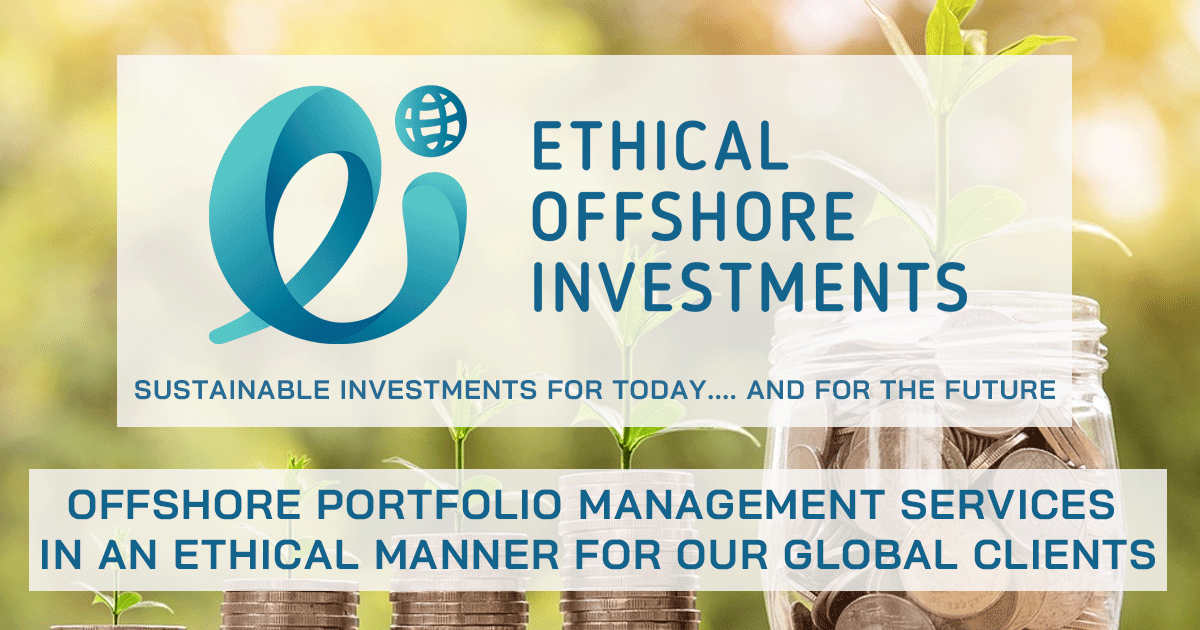How Offshore Investment Can Help You Safeguard Assets from Financial Instability
All Regarding Offshore Financial Investment: Insights Into Its Benefits and Factors To Consider
Offshore financial investment has become an increasingly pertinent subject for individuals seeking to diversify their profiles and boost monetary safety. While the potential advantages-- such as tax optimization and asset security-- are compelling, they come with a complex landscape of threats and regulatory challenges that require cautious factor to consider. Recognizing both the benefits and the mistakes is necessary for any individual considering this investment technique. As we discover the nuances of offshore investment, it comes to be evident that informed decision-making is crucial for optimizing its potential benefits while alleviating inherent threats. What factors should one prioritize in this detailed setting?
Recognizing Offshore Investment
In the world of global finance, comprehending offshore financial investment is critical for people and entities looking for to maximize their economic profiles. Offshore investment refers to the placement of assets in banks outside one's country of home. This practice is often utilized to attain different economic goals, consisting of diversification, property defense, and possible tax advantages.
Offshore financial investments can include a large array of monetary tools, including stocks, bonds, common funds, and genuine estate. Financiers might pick to establish accounts in territories known for their desirable regulative settings, personal privacy legislations, and economic security.
It is important to identify that offshore investment is not naturally identified with tax evasion or illicit activities; rather, it offers legitimate objectives for numerous investors. The motivations for engaging in offshore investment can vary widely-- from looking for higher returns in developed markets to safeguarding assets from political or economic instability in one's home nation.

Nonetheless, prospective financiers need to also be aware of the complexities entailed, such as compliance with global regulations, the necessity of due persistance, and comprehending the lawful effects of offshore accounts. In general, a detailed understanding of offshore investment is vital for making enlightened economic decisions.
Secret Benefits of Offshore Financial Investment
Offshore investment uses several essential advantages that can improve a capitalist's economic approach. One noteworthy benefit is the possibility for tax optimization. Many offshore territories supply desirable tax obligation regimens, enabling financiers to decrease their tax obligation responsibilities legally. This can substantially boost general returns on financial investments.
Furthermore, offshore investments often give accessibility to a broader variety of investment possibilities. Financiers can expand their portfolios with assets that may not be readily offered in their home nations, including worldwide stocks, actual estate, and specialized funds. This diversity can lower threat and improve returns.

In addition, offshore financial investments can help with estate planning. They enable financiers to structure their assets in such a way that lessens estate tax obligations and makes certain my latest blog post a smoother transfer of riches to heirs.
Common Dangers and Obstacles
Buying offshore markets can present numerous risks and difficulties that need careful consideration. One significant risk is market volatility, as offshore financial investments might undergo variations that can impact returns dramatically. Financiers should also be conscious of geopolitical instability, which can interrupt markets and influence investment efficiency.
Another difficulty is currency threat. Offshore investments often include transactions in international money, and negative currency exchange rate motions can erode profits or rise losses. Offshore Investment. Furthermore, limited accessibility to reputable info regarding offshore markets can hinder informed decision-making, bring about prospective missteps
Absence of regulative oversight in some offshore territories can also position dangers. Capitalists may locate themselves in settings where financier security is marginal, increasing the danger of scams or mismanagement. Furthermore, varying monetary practices and cultural mindsets towards financial investment can complicate the investment process.
Legal and Regulative Considerations
While navigating the complexities of offshore investments, understanding the legal and regulatory landscape is vital for protecting possessions and making sure conformity. Offshore investments are frequently subject to a wide range of regulations and laws, both in the financier's home nation and the territory where the financial investment is made. It is necessary to conduct comprehensive due persistance to understand the tax obligation ramifications, reporting demands, and any kind of legal obligations that might develop.
Regulatory frameworks can differ substantially between jurisdictions, affecting every little thing from taxation to capital requirements for foreign investors. Some countries may provide positive tax obligation routines, while others impose rigorous policies that might hinder financial investment. Furthermore, worldwide arrangements, such as FATCA (International Account Tax Compliance Act), might obligate investors to report overseas holdings, raising the demand for transparency.
Investors should additionally recognize resource anti-money laundering (AML) and know-your-customer (KYC) policies, which need monetary institutions to confirm the identification of their clients. Non-compliance can lead to severe penalties, including fines and restrictions on financial investment activities. Therefore, engaging with legal experts specializing in global financial investment legislation is imperative to browse this intricate landscape efficiently.
Making Enlightened Choices
A strategic strategy is crucial for making educated choices in the world of overseas financial investments. Comprehending the complexities included calls for extensive research and analysis of different factors, consisting of market fads, tax implications, and lawful structures. Financiers must evaluate their threat resistance and investment objectives, guaranteeing alignment with the special features of overseas opportunities.
Looking at the regulatory environment in the chosen jurisdiction is crucial, as it can dramatically influence the safety and security and earnings of investments. Furthermore, staying abreast of financial conditions and geopolitical developments can provide beneficial understandings that inform financial investment strategies.
Involving with professionals that focus on overseas investments can likewise boost decision-making. Offshore Investment. Their know-how can guide capitalists via the intricacies of worldwide markets, helping to recognize profitable opportunities and prospective challenges
Ultimately, notified decision-making in overseas financial investments depends upon a well-rounded understanding of the landscape, a clear articulation of private goals, and a dedication to recurring education and learning and adjustment in a dynamic global environment.
Verdict
Finally, overseas investment presents substantial advantages such as tax obligation optimization, asset security, and accessibility to global markets. It is important to recognize the connected risks, consisting of market volatility and regulative difficulties. A comprehensive understanding of the legal landscape and attentive research is necessary for effective navigating of this complex sector. By addressing these considerations, investors can properly harness the benefits of overseas investments while minimizing possible drawbacks, inevitably bring about informed and critical monetary decisions.
Offshore financial investment supplies a number of crucial benefits that can enhance a financier's monetary strategy.In addition, overseas financial investments frequently provide access to a broader range of financial investment opportunities. Differing economic methods and cultural attitudes toward investment can make complex the investment procedure.
